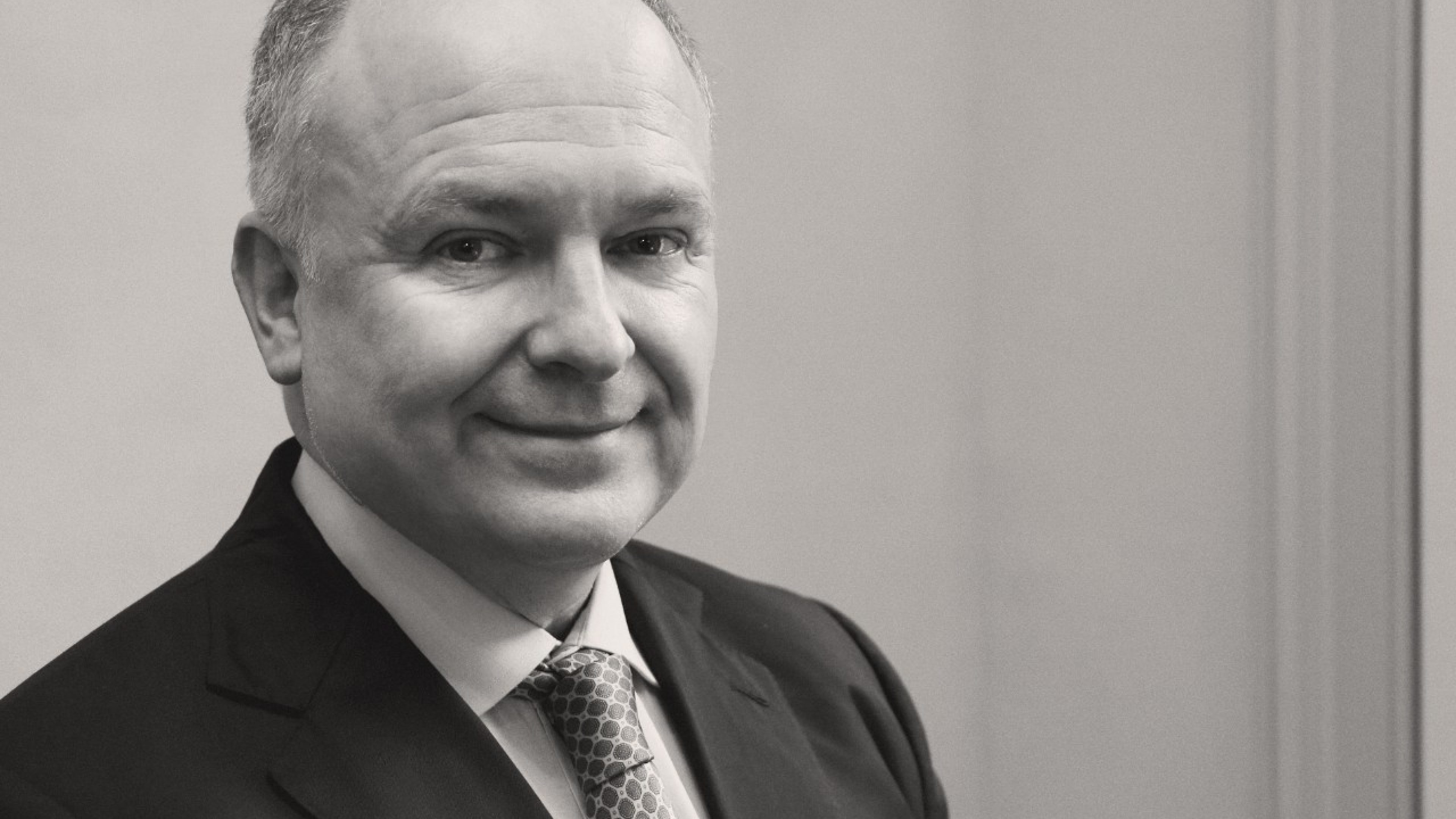Advances in medicine, technology and a growing awareness of the benefits of a healthier lifestyle are allowing many Europeans to live well into their 80s or even 90s. But the social and economic consequences of this development are highly underestimated.
The CEO of Swiss Life, Patrick Frost, stresses people’s fundamental need to enjoy their longer lives with self-determination and dignity. Here, he reveals new perspectives on the longevity debate and expresses an optimistic view of a fulfilling longer life.
Why do we need to rethink our understanding of longevity?
I believe I can safely say that the social and economic consequences of living longer are highly underestimated in almost all areas of life. The urgency of this issue is increased by the fundamental need to enjoy a self-determined and dignified life.
The special thing about longevity is that it affects us all — it is a worldwide phenomenon. Longevity concerns us as individuals and as family members, and it has an impact on governments and corporations.
There has been a lot of focus on the negative aspects of longevity — the distribution of wealth, or governments being stretched to their limits — but the reality is that we are living healthier, longer lives. So increased longevity is in fact a positive development.
What does preparing for and enjoying a longer self-determined life mean to you?
Preparing for a longer life means planning ahead to be able to meet your goals and enjoy the activities that you want to pursue. We need to take personal responsibility for our own future. That means taking the right action now to help us when we are older.
As individuals, we need to build strong relationships and try to maintain good health to ensure that we remain socially active in old age. We should do our bit and work towards a bright future based on positive memories of the past.
As a financial institution, Swiss Life’s role is to ensure that individuals are financially equipped to really enjoy their lives in a self-determined way — in other words, to live the long lives they want to live.
Speaking from a personal perspective, my daughter’s generation —the oldest one is just two — will grow old in a totally different world. I want them to look back and see that their parent’s generation was the first to create the framework to support and enable a longer self-determined life.
What are the barriers faced by today’s Europeans in preparing for and enjoying a longer self-determined life?
Typically, Europeans have a fixed target for when they want to retire. For most people, that is earlier than the usual retirement age set by the government.
Wanting to leave the workforce as soon as possible is one of the major barriers to enjoying a longer self-determined life, because it limits the ability to save. Yet one of the key aspects to living a long, happy retirement is continuing to contribute to the rest of society, and that often means remaining in the workforce.
There are barriers, however. Government policy imposes strict separation between work and retirement. Moreover, we tend to replicate the way in which we saw our parents move from work into retirement.
We now have a huge opportunity to overcome those barriers because we recognise that people are physically able to work later in life. In addition, in many parts of the economy, jobs are non-physical, meaning that people can stay in employment for longer.
Which existing systems can we look to for inspiration on how to deliver better outcomes for those preparing for a longer life?
Switzerland has done a tremendous job in encouraging a culture of long-term saving. The Swiss government and the occupational benefit system in general incentivise people to carry on saving beyond age 65.
Another example is the Nordic region, which is gradually preparing people to work longer by linking contributions to average life expectancy. The same is also true in the UK and the US, where flexible labour laws are in place that facilitate employing the elderly.
Nevertheless, the big picture does not look that bright: Public sector finances in many countries are out of equilibrium. Governments are being pushed to their limits and are finding it harder to meet the financial challenge of people living longer. With such pressures on government budgets, the importance of taking personal responsibility for retirement is even more important.
Who should be helping tomorrow's retirees prepare for a longer retirement?
A lot of people depend on family and friends for support in their lives, but when it comes to financial matters, people tend to look outside that network for help.
Financial companies provide a significant independent resource in helping individuals plan for a longer self-determined life. We can help people actively meet their future objectives by putting long-term financial plans in place and helping individuals understand how saving now pays for the future.
We also have a role in improving individuals’ financial literacy, which is a critical element to enjoying improved longevity.
What are the tools that people need to ensure they are prepared for and able to enjoy longer lives?
All of the elements needed to enjoy a longer, happier life come down to trust.
Savers need to have trust in a sound legal and governance system that will honour the promises made over a pension fund’s entire lifetime. The financial sector must take that trust very seriously.
As people age, their willingness and ability to take care of financial matters change, and financial companies need to respond with appropriate advice and products. We need to equip people with tools that correspond to their differing skill sets and to where they are on their savings journey.
For centuries, the financial services industry has been offering individuals products aimed at delivering stability in later life. How does the industry need to change its understanding of longevity and self-determination to better serve today’s Europeans?
At its core, what we do remains the same: To ensure that individuals are financially stable in retirement. But we are changing the way that we address people by talking about opportunities and focusing on the positive aspects of longevity.We still talk about future income gaps and potential risk, but we also show people additional resources to lead a longer, financially independent life. We are developing products that are relevant for today’s generation, offering more flexibility and working with other companies to find the right solutions to a variety of needs. Inheritance planning and taxation advice are also gaining importance, with implications not just for us, but for lawyers and financial advisers too.

Group CEO Patrick Frost emphasises that Swiss Life has an important role to play in improving the financial literacy of its customers.
What are the key objectives for individuals, employers, politicians and service providers in ensuring that Europeans prepare for and enjoy a longer self-determined life?
Securing financial stability in retirement always starts with individuals. We are responsible for taking the final decades of our lives into our own hands, and we should take advice if we need help preparing for that part of life.
Employers need to remove barriers that prevent people from remaining in work longer, while governments need to create policies that encourage employment beyond normal retirement age.
Politicians should take the lead in building a regulatory framework that addresses the challenges of an ageing society in the right way and ensures the sustainability of Europe’s social security systems, with a broader collective approach to the social contract.
And service providers such as insurers have to develop new products, services and advisory capabilities that address this societal shift and allow people to plan properly for their later years and face them with confidence and joy.
When do you envisage a notable shift in attitudes from a negative to a positive appreciation of improved longevity?
This is already happening in part. We have scientific evidence to show that almost all of the longer life we live is healthy.
At Swiss Life we want to bring the issue of “a longer self-determined life” into the public arena for debate. In doing so we want to ensure that the topic gets the attention from society that it deserves, given its huge relevance to today's generation.
As a financial services provider, we will naturally place the economic side of a longer self-determined life in the spotlight. We will not do this in a negative way. We want people to be optimistic about the numerous possibilities created by a longer life and to play our role in helping individuals achieve their long-term goals.
Interview: Gill Wadsworth / Pictures: Gerry Nitsch



